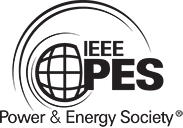The following 10 tutorials will be presented during the 2023 IEEE PES General Meeting. Courses are taught by top professionals in the field. Earn CEUs/ PDHs for your attendance and completion of the classes.
- A full or one-day event registration plus an additional tutorial fee is required in order to attend any of these tutorial courses.
- Tickets may be purchased at the Registration desk during the event if seats are available.
TUT 1 Voltage Optimization: Methodologies, Implementations, and Industry Practices
Date: Sunday, 16 July 2023 8:00 AM – 12:00 PM
Price: Early Bird $195 USD, Regular $240 USD; Student Early Bird $50 USD, Student Regular $75 USD
Lead Instructor: Wen Fan, ComEd
Instructors: Zhaoyu Wang, Iowa State University, Hong Chun, Sentient Energy
Electric utilities constantly deploy energy efficiency programs to achieve energy savings, minimize peak load, and make the gird more environmentally friendly. Voltage optimization (VO) is an energy efficiency measure that combines the technology of conservation voltage reduction (CVR) and Volt-Var Optimization (VVO) to deliver optimized voltage to customers and improve end-use efficiency. Studies have shown that deployment of CVR throughout the feeders in the U.S. can yield energy savings of 3.04% annually. This half-day tutorial will focus on VO implementation, innovation, deployment, and impacts. It is delivered by leading researchers and engineers who have worked on VO-related field implementation and research. Real utility practices on VO deployment and management, methodologies for assessing VO energy saving, along with the lessons learned from field experience will be presented and discussed.
TUT 2 Power System Stabilization Via Excitation Control
Date: Sunday, 16 July 2023 8:00 AM – 5:00 PM
Price: Early Bird $295 USD, Regular $395 USD; Student Early Bird $100 USD, Student Regular $150 USD
Lead Instructor: Les Hajagos, Principal Engineer, Kestrel Power Engineering Ltd.
Instructors: Ruediger Kutzner, University of Applied Sciences Hannover, Matthias Baechle, ABB, Uwe Seeger, Siemens Energy, Shawn Patterson, USBR
In this tutorial feedback control and power system stability theory is presented to explain the foundation concepts of power system stabilization by excitation control. Tuning and testing techniques and application considerations are described. Both present-day stabilizer types and future directions in stabilizer design are explained.
TUT 3 Generic Modeling of Inverter Based Resources (IBR) and Load for Power System Planning Studies
Date: Sunday, 16 July 2023 8:00 AM – 12:00 PM
Price: Early Bird $195 USD, Regular $240 USD; Student Early Bird $50 USD, Student Regular $75 USD
Lead Instructor: Deepak Ramasubramanian, Electric Power Research Institute
Instructors: Pouyan Pourbeik, PEACE®, Juan J. Sanchez-Gasca, GE Energy Consulting, Vijay Vittal, Arizona State University, Shruti Dwarkanath Rao, GE Energy Consulting, Parag Mitra, Electric Power Research Institute, Wes Baker, Electric Power Research Institute
Inverter control systems are highly proprietary in nature and typically are protected by vendors. As a result, carrying out transmission system planning studies can be cumbersome wherein the exact type of inverter control is unknown. Generic models can help play a role in this space, among other use cases. This tutorial will provide an overview of the state of the art of generic modeling of IBRs for grid studies both in strong and weak grids. Additionally, the tutorial will also cover the state of the art in aggregate modeling of distributed energy resources (DERs) and load, whose representation is crucial for informed power system planning.
TUT 4 Probabilistic Energy Forecasting: Methodologies, Implementations, and Applications
Date: Sunday, 16 July 2023 8:00 AM – 5:00 PM
Price: Early Bird $295 USD, Regular $395 USD; Student Early Bird $100 USD, Student Regular $150 USD
Lead Instructor: Dr. Jethro Browell, University of Glasgow
Instructors: Dr. Yi Wang, ETH Zurich, Dr. Tao Hong, University of North Carolina at Charlotte, Dr. Bri-Mathias Hodge, National Renewable Energy Laboratory and University of Colorado, Boulder, Dr. Ricardo Bessa, INESC TEC, Portugal
The increasing integration of weather-dependent renewable energy and flexible loads introduces great complexity and uncertainty to power systems. Modern power systems rely on forecasts of many variables from minutes to weeks ahead to maintain reliable and economic operation. Probabilistic forecasts empower decision-makers with information about forecast uncertainty and play an important role in a growing number of power systems around the world. This tutorial introduces probabilistic forecasting, describes leading methods for load, price, wind, and solar forecasting, and explains how these forecasts are used in power systems. It is delivered by leading researchers who have developed these methods and supported their adoption energy industry in the US, Europe, and beyond.
TUT 5 Studies for Planning and Execution of HVDC Transmission Projects
Date: Sunday, 16 July 2023 8:00 AM – 5:00 PM
Price: Early Bird $295 USD, Regular $395 USD; Student Early Bird $100 USD, Student Regular $150 USD
Lead Instructor: Robert H. Renner, Siemens Energy
Instructors: Zhou, Jenny, PSC, Just Hendrik, 50Hz, Vajira Pathirana, Pattern, Sahar Pirooz Azad, University of Waterloo, Kyeon Hur, Yonsei University, Hiranya Suriyaarachchi, Transgrid Solutions, Abhay Kumar, Hitachi Energy, Hakan Ergun, KU Leuven
This tutorial gives an overview of general steps/studies which are necessary during planning and execution phases of an HVDC project. They are structured in: Transmission Expansion Plan, Feasibility Studies, Specification Studies, Tender Phase, Project Execution.
TUT 6 Dynamic Grid Stabilization with Grid-Forming + Energy Storage Technologies
Date: Sunday, 16 July 2023 8:00 AM – 5:00 PM
Price: Early Bird $295 USD, Regular $395 USD; Student Early Bird $100 USD, Student Regular $150 USD
Lead Instructor: Jan Paramalingam, POWER Engineers Inc.
Instructors: Martin Cameron, Xcel Energy, Mikael Halonen, Hitachi Energy, David Langner, Siemens Energy, Joe Warner, POWER Engineers, Sergey Kynev, Siemens Energy, Dr. Sahar Pirooz Azad, University of Waterloo, Dr. Marco Lindner, TransnetBW, German TSO, Dr. Jef Beerten, KU Leuven, Dr. Rajiv K. Varma, University of Western Ontario
This tutorial presents approaches to planning and specification, technology principles with example installations, a comparative evaluation of performance, and an analysis of future trends expected to influence technology development and its place in the market. The technology includes synchronous condensers, static var compensators (SVC), static synchronous compensators (STATCOM), STATCOMs with energy storage, utilization of Solar PV systems as STATCOM (PV-STATCOM), and VSC HVDC.
TUT 7 Application of CIM-based Methodologies to Utility Big Data Management and Real-time Operation Model Update
Date: Sunday, 16 July 2023 1:00 PM – 5:00 PM
Price: Early Bird $195 USD, Regular $240 USD; Student Early Bird $50 USD, Student Regular $75 USD
Lead Instructor: Yidan Lu, AEP
Instructors: Pedro Aneses, AEP, Jun Zhu, Power Info LLC, Xufeng Xu, AEP, Feng Tu, Power Info LLC
With NERC pushing TOP-001-06, transmission operators are required to model external facilities and their impacts in their real-time operation model. However, differences in the format a structure of modeling data lead to challenges in inter-entity information exchange. To address this challenge, Common Information Model (CIM)-based methodologies were proposed to facilitate inter-corporate big data management. With API, the proposed methodologies successfully standardized and automated the procedure to integrate and maintain external regions of the En management System (EMS) of American Electric Power (AEP). For the past five years, the bulk and incremental CIM-based methodologies have facilitated more than thirty rounds of External Model Update (XMU) in AEP. Furthermore, R&D projects were launched to extend the compatibility of the proposed methodologies so that they can be used with different vendor-supplied EMS. The purpose of the tutorial is to share experience on utility modeling data management with fellow entities. We hope our practice could bring insights to industrial peers and further prom interoperability.
TUT 8 Fundamentals of Transactive Energy Systems
Date: Sunday, 16 July 2023 8:00 AM – 5:00 PM
Price: Early Bird $295 USD, Regular $395 USD; Student Early Bird $100 USD, Student Regular $150 USD
Lead Instructor: Sarmad Hanif, Pacific Northwest National Laboratory
Instructors: Hayden Reeve, Pacific Northwest National Laboratory, Ron Melton, Pacific Northwest National Laboratory, Trevor Hardy, Pacific Northwest National Laboratory
Transactive Energy (TE) systems are gaining popularity as a reliable and cost-effective way of coordinating and operating large decentralized and distributed resources in the grid. This tutorial aims to provide comprehensive knowledge of TE systems. The attendees will learn about 1) the fundamentals, 2) the role of Distribution System Operators (DSO), 3) the coordination and valuation strategies and 4) the current and future challenges of TE systems. The tutorial will conclude with the field experiences and current state-of-the-art experiences of TE systems.
TUT 9 Grid Forming Inverter Technology
Date: Sunday, 16 July 2023 1:00 PM – 5:00 PM
Price: Early Bird $195 USD, Regular $240 USD; Student Early Bird $50 USD, Student Regular $75 USD
Lead Instructor: Deepak Ramasubramanian, Electric Power Research Institute
Instructors: Sairaj Dhople, University of Minnesota, Dominic Gross, University of Wisconsin-Madison, Brian Johnson, University of Texas at Austin, Wenzong Wang, Electric Power Research Institute, Duncan Callaway, University of California Berkeley, Philip Hart, GE Research
Increase in the interconnection of inverter-based resources around the world has brought about the need for grid forming (GFM) technology. However, the use of this technology for large-interconnected power networks is still an open field of research with many questions remaining open such as fault response, stability, and guarantee of grid-forming property. This tutorial will provide an overview of grid forming technology, and in-depth details regarding modeling, control, and stability analysis of GFM supported both by simulation and hardware results.
TUT 10 Grid Energy Storage Meeting the Challenges of a Decarbonized Future
Date: Sunday, 16 July 2023 1:00 PM – 5:00 PM
Price: Early Bird $195 USD, Regular $240 USD; Student Early Bird $50 USD, Student Regular $75 USD
Lead Instructor: Rick Fioravanti, Quanta Technology
Instructors: Ray Byrne, Sandia National Labs, Babu Chalamala, Sandia National Labs, Ralph Masiello, Quanta Technology, Jim McDowall, SAFT Batteries, Tu Nguyen, Sandia National Laboratories, Yuliya Preger, Sandia National Labs, Chris Searles, BAE Batteries, Charlie Vartanian, PNNL
This multi-presenter tutorial covers the basics of how electrical energy storage supports decarbonization initiatives across the U.S. To cover this topic, the 4-hour tutorial will be divided into four (4) sections, starting with a review of current technologies targeted for this area, e.g., lithium-ion pumped hydro, flow batteries, and long-duration energy storage. Next, market application challenges and valuations will be discussed where the focus will be on the duration needed in a decarbonized scenario and market products that may be required to ensure deployment. In the final two sections, the focus will shift to the engineering of energy storage systems, code compliance, and interconnection – including electrification technologies. The last section will review system safety and reliability.


